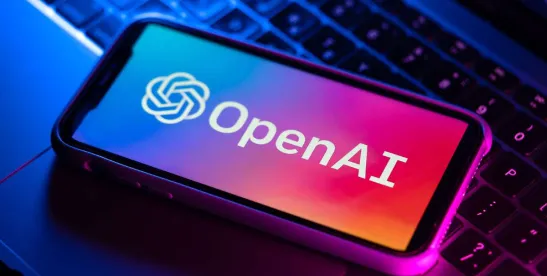OpenAI scored a major legal victory as Judge McMahon dismissed Raw Story Media’s DMCA claims yesterday—”No concrete harm, no standing.”
Plaintiffs Raw Story Media, Inc. and AlterNet Media, Inc., heavyweights in the news industry with over 400,000 published articles, accused OpenAI of violating the Digital Millennium Copyright Act (“DMCA”), specifically Section 1202(b)(i). They alleged that OpenAI’s ChatGPT ingested thousands of their copyrighted articles—stripped of author names, titles, and copyright notices—to train its language model without permission.
But in a decisive ruling, Judge McMahon of the United States District Court for the Southern District of New York granted OpenAI’s motion to dismiss. The court held that the plaintiffs lacked Article III standing because they failed to demonstrate any concrete injury. Quoting the Supreme Court’s decision in TransUnion LLC v. Ramirez: “No concrete harm, no standing.”
The court here emphasized that the mere removal of Copyright Management Information (“CMI”), without evidence of dissemination or concrete damage, was “too abstract” to constitute a concrete injury. “Plaintiffs have not alleged any actual adverse effects stemming from this alleged DMCA violation.”
Also VERY IMPORANT….the court also addressed the plaintiffs’ request for injunctive relief, which sought to compel OpenAI to remove their content from its systems due to a “substantial risk” that ChatGPT might reproduce their articles verbatim without credit. Judge McMahon found this argument speculative:
“Plaintiffs have not plausibly alleged that there is a ‘substantial risk’ that the current version of ChatGPT will generate a response plagiarizing one of Plaintiffs’ articles.”
The court further explained:
“An allegation of future injury may suffice if the threatened injury is ‘certainly impending,’ but that threshold has not been met here.”
Judge McMahon really cut to the chase here:
“Let us be clear about what is really at stake here. The alleged injury for which Plaintiffs truly seek redress is not the exclusion of CMI from Defendants’ training sets, but rather Defendants’ use of Plaintiffs’ articles to develop ChatGPT without compensation to Plaintiffs.”
In other words, the plaintiffs were aiming at the wrong target. Their real issue was unauthorized use without payment—a matter not addressed by Section 1202(b)(i) of the DMCA.
While the dismissal was without prejudice, allowing the plaintiffs a narrow window to amend their complaint, Judge McMahon expressed skepticism:
“I cannot ascertain whether amendment would be futile without seeing a proposed amended pleading. I am skeptical about Plaintiffs’ ability to allege a cognizable injury.”
If you’re going to take on a tech giant like OpenAI over copyright claims, you’d better come prepared with evidence of actual, concrete harm. Vague allegations and speculative risks won’t cut it.
And as Judge McMahon put it:
“Whether there is another statute or legal theory that does elevate this type of harm remains to be seen. But that question is not before the Court today.”
Truly an excellent order from Judge McMahon. Click here to read it in its entirety: Order.




 />i
/>i

